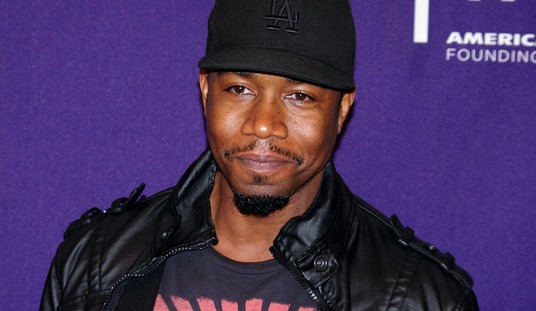Most of America knows that Colorado resident Gary Brooks Faulker was arrested in Pakistan on Tuesday, allegedly on a personal mission to kill Osama bin Laden. Faulker says he was seeking revenge for 9/11. According to his brother, he had accepted that he might die trying.
While several other individuals, including Americans, have been arrested trying to kill bin Laden, Faulkner is unusual in that he was not a bounty hunter (after the reward money) or a solider of fortune (a paid member of a small army), but rather a mercenary for God. “He’s a very deeply religious individual, very patriotic,” Faulkner’s brother-in-law John Martin told ABC News. “It seemed to be his thing. He thought it should be done and he thought he could accomplish it.”
On Thursday, I phoned the FBI seeking information about what the actual terms and conditions are for capturing or killing Osama bin Laden — without winding up in prison. In 2007, the Senate voted 87-1 to double the reward for the death or capture of bin Laden to $50 million. That’s a pretty big carrot to dangle in front of anyone, whether they are out for rewards in this life or the next one. With that kind of money on the table, there would have to be rules of the game, yes?
No. A, FBI spokesman said there is no official document per se, but that local laws and international treaties cannot be violated.
This is, of course, a paradox. Most lawless countries do not allow extrajudicial killings of people who live there — even Pakistan and Afghanistan. There is one notable exception in the lawless country of Sudan.
An evangelical preacher from Pennsylvania named Sam Childers is currently on a very public, very personal mission to hunt down and kill a man named Joseph Kony, the leader of a terrorist organization called the Lord’s Resistance Army. Childers roams around the desert in Sudan and Uganda accompanied by a small force of mercenaries on his payroll (he’s an arms dealer, among other things) seeking to kill the man Childers calls “Satan.”
Unlike the government of Pakistan, which arrested Faulkner, the government of Southern Sudan has given Childers safe passage and an honorary title. In addition to trying to murder Kony, Childers started an orphanage called Angels of East Africa where children rescued from Kony’s army of child soldiers are rehabilitated.
America has been less supportive of the born-again preacher’s African efforts. The United States embassy in Uganda told Childers to cease and desist. “I couldn’t care less,” Childers told reporter Ian Urbina. “I have a calling and I’m going to follow it.”
Other American citizens have tried to assassinate Osama bin Laden for the reward money, and also wound up in prison instead. Michigan resident Matt Mihsen was arrested at the airport in Detroit, en route to Syria in the winter of 2005. With him he carried a Taser gun, 40 rounds of ammunition, and a bulletproof vest. He told FBI agents that he was after what was then a $25 million dollar bounty. New York native Jonathan “Jack” Idema also sought fortune and fame in his quest to find bin Laden. Instead, in 2004, Idema was arrested for torturing Afghans and was sentenced to 10 years in prison there.
Mercenaries, in various incarnations, are as old as war, but the credit for the modern term “soldier of fortune” goes to self-described “warrior king” Robert K. Brown. Upon returning from the Vietnam War where Brown was a U.S. Special Forces team leader and Green Beret, he decided to publish an information circular called Soldier of Fortune. Most of the information was advertising on behalf of the tiny Middle Eastern country of Oman. Its sultan needed guns-for-hire to help quell an insurgency there. Brown’s newsletter caught the eye of the security forces of Rhodesia, who became Soldier of Fortune’s next client — they too needed mercenaries to help fight the Rhodesian Bush War.
Quickly, Brown’s few-page newsletter became a glossy magazine resplendent with stories by “journalists who carry a camera and a gun.” It has been in publication ever since. “I’ve been involved in a number of conflicts [supplying] ‘mercs’ if you will … in Rhodesia, Laos, Kuwait City after the Gulf War, Peru … ” Brown says in a video on his magazine’s website. The idea of a private army of mercenaries, like the ones who fought in Africa in the 1970s, was once looked down upon. Today, the private army is an integral part of the U.S. fighting force in the wars in Afghanistan and Iraq, and in other conflicts around the globe.
As for Gary Faulkner, the FBI tells me that it is currently working with the State Department in seeking his release from prison. The Department of Justice is handling the Mutual Legal Assistance Treaties, or MLATS, that may or may not have been violated by Faulkner’s one-man mission to kill bin Laden.
As for guidelines outlining the terms and conditions for killing or capturing Osama bin Laden and getting that $50 million reward, the FBI said it would have to get back to me.









Join the conversation as a VIP Member